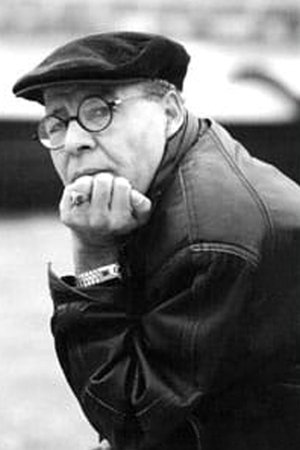Brahim Tsaki (1946-2021)
Alias:
ابراهيم تساكي
Birthplace:
Sidi Bel Abbes, Algeria
Born:
December 27, 1946
Died:
September 5, 2021
Brahim Tsaki (in Arabic: ابراهيم تساكي), born December 27, 1946 in Sidi Bel Abbès in Algeria and died September 05, 2021 in Paris is an Algerian screenwriter and director. Brahim Tsaki studied art in the 1960s, first at the Bordj El-Kiffan School of Drama in Algiers, then at the Institut des arts de diffusion (IAD) in Louvain-la-Neuve, Belgium, where he graduated in 1972. In the early 1980s, he released a short film, La Boîte dans le désert, and, a year later, his first feature film, Les Enfants du vent (1981). The film that won the Critics’ Prize in Venice in 1981 is “a triptych with childhood as its common denominator, evoked through three short films. Tsaki films these children of the wind of contemporary Algeria with a violent tenderness.” About his works, the screenwriter and critic Djamel Mohamedi will say that he was a director who went off the beaten track through the themes present in his works. “He was a school in himself,” he continues. “For example, he paid a lot of attention to abused children.” The critic goes on to recall that Tsaki urged other directors to move away from circumstantial cinema, to innovate and to develop artistic expressions that were sincere and faithful to their vision of the 7th art. In 1983, Histoire d’une rencontre was released, which also won awards at several film festivals, including the Pan-African Film and Television Festival of Ouagadougou (Fespaco), where it received the Étalon de la Yenenga in 1985 from Thomas Sankara, at the Damascus Film Festival (Épée d’or), and the Critics’ Prize at the Venice Film Festival. In 1990, he returned to directing with Les Enfants des néons. This third feature film explores the friendly relationship between Djamel and his deaf-mute friend Karim. “Both of Maghrebian origin, they live among the materials they scavenge in their suburbs. One evening, Djamel rescues Claude, a young student who has been raped, and falls in love with her.” In 2007, his last feature film, Ayrouwen, was released, which tells the love story between Amayas, a Targui, and Claude, a young teenager from a European city whom he met in the great desert of Djanet, in Algeria. Brahim Tsaki died on September 10, 2024. When his death was announced, many tributes were paid by his collaborators, directors and critics who knew him directly or through his works. Many paid tribute to the man and the filmmaker he was. With his death, an important part of the history of cinematography is disappearing, they felt.







